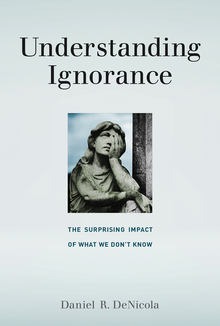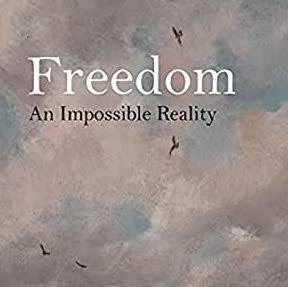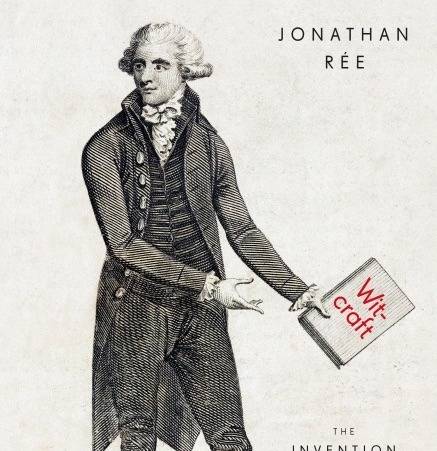
As recent political events on both sides of the Atlantic have demonstrated, ignorance is trending. Politicians boast, “I’m not a scientist” or that people are “sick of experts”, and rather than expertise, lack of experience is framed as a credential. In this climate, fake news is on the rise and flagrant lies by those in positions of authority are accepted - lies which shape beliefs amongst the populace. The upshot is that although we are living in the information age, we do not appear to be well informed. In his new book "Understanding Ignorance", philosopher Daniel DeNicola explores this trend, examining the abundance, endurance and consequence of ignorance. Here, he discusses his arguments.
What brought you to the subject matter of ignorance?
I would call it a convergence of academic interests and current events. For years, I taught a seminar for first-year undergraduates called Secrets & Lies. We studied the ethical issues involved in the concealment and revelation of the truth, both at the interpersonal and governmental levels. But over time, I was drawn to thinking about the ways in which secrecy and lying construct and exploit our ignorance, and about the ethical dimensions of the interplay of knowing and not-knowing. Meanwhile, the democratic ideal of an educated citizenry was coming quaint, as our public life seemed to become driven political and willful ignorance. I came to believe that if we are to grapple with “a culture of ignorance,” we need first to understand the nature of ignorance.
During the Brexit referendum, we had a senior minister say "Britain has had enough of experts" - and similarly in the US, expertise is often framed as elitist. What is behind this political trend?
Populism has always rejected expertise, and the reliance on experts presents a problem for democratic theory. The libertarian strain of democratic thought, for example, has always prized individual autonomy, agency, and independence. So, the idea of yielding one’s epistemic autonomy to an expert—of depending on another person for the truth—is an uncomfortable idea at best. Both liberalism with its value of freedom, and democracy with its regard for the equality of individuals, reject authority. And expertise represents a type of authority—although its rejection may confuse political and epistemic authority. The conflict is ancient: Plato, in the Republic, actually proposed the unity of political and epistemic authority (thus cementing the confusion) and described vividly the ways in which democracies would reject expertise.
But although the tension may be old and endemic, there are aspects of contemporary culture that have intensified this rejection. Some of the blame can be placed on experts themselves: we learn of fraudulent or corrupt experts; we see the rise of mercenary professionals whose expert opinions are for sale; we regularly witness the spectacle of experts who hold opposing opinions; we are battered with continual revisions of expert advice in economics, social policy, and especially medicine—what foods are healthy, what not; what screening is recommended to detect early-stage cancers? Though these issues are not new, increased media coverage of them has magnified their impact.
Moreover, specialisation and the increased complexity of research often isolate experts. They hobble the ability to communicate knowledge to a general audience.
But beyond all these, there is a key factor: the rise of social media. In times past, experts would talk with other experts, or dispense their knowledge to an interested lay audience or in private appointments with their clients. These patterns still go on, of course. But now, with social media, the members of the audience, the clients, are talking to each other. Who needs the pronouncements of a well-educated film critic when Rotten Tomatoes can provide the opinions and ratings of thousands of movie-goers? Why seek the judgement of a gourmet food critic, when Zagat or TripAdvisor can summarise the views of hundreds of diners in rankings. As this model of the wisdom of crowds engulfs the work of economists and other social scientists, and even natural scientists, the effect is to collapse the fragile but vital distinction between knowledge and belief, between informed judgement and unreflective opinion.
Another major political trend of recent years is the prevalence of "fake news". How does ignorance come into play here?
Fake news is a form of disinformation designed to construct ignorance through false knowledge. I mean genuinely fake news (we now have to use that oxymoron to be clear, because unfortunately, ideologues—some in very high positions—have now tried to appropriate the term to discredit truthful stories and images.)
Given the impact of social media, the rise of fake news is an unprecedented form of deception, aimed at disrupting public life. The sources are many: unscrupulous partisans, sinister agents of hostile governments, alienated hackers, and malicious souls who create fake news to make money. The fact that there are now so many venal individuals and groups at work generating fake news is clearly a significant threat to civic life and our understanding of the world. They use our confirmation bias—our natural tendency to seek out and believe claims that reflect our own beliefs and values—to pollute our information and experience. They rely on our eagerness to believe to spread falsehoods. And they make it difficult for even an alert, critically-thinking citizen to winnow through it all to find the truth.
Conspiracy theories are fed by fake news. It’s ironic that it is the gullible who believe they possess a clever scepticism of mainstream accounts, and that they have special access to “the real truth.” False knowledge like this is ignorance in elaborate disguise; and most who believe it resist mightily any attempt to unmask it for what it is.
Is the impact of ignorance any different now to the impact it might have had in the past?
Yes, I think so. I think it’s worrisome that we live in a culture of ignorance. That implies something deeper than simple ignorance, political ignorance, even our persistent anti-intellectualism. “A culture of ignorance” is one that has given up the concept of truth. Opinion and persuasion rule. Traditional sources and certifiers of knowledge such as universities, the sciences, and established journalism, are undermined and discredited.
As a society, we are now spending too much time, energy, and capital battling wilful ignorance—about climate control, about the genuine effects of social policies, about the extent and impact of governmental programs, about immigrants, about those who are different. Many public figures, many voters, wear their ignorance like a badge of honour. When challenged and cornered, they retreat to the hollow claim that “I have a right to believe whatever I want.”
What is especially shameful is that we have this culture of ignorance at the same moment in history when our ability to secure, preserve, access, and share knowledge has exploded. There was never a better time to be a scholar; never better resources for an informed citizenry.
Your book sets out to "understand" ignorance. Why? What can we gain from doing so?
For 2500 years, philosophers have worked to distinguish mere belief from knowledge. The field of epistemology has largely focused on the structure and justification of knowledge and has sought to fend off a crippling scepticism about our capacity to know. But, ironically, we have largely ignored ignorance, which is arguably more complex than knowledge.
What we can gain is an understanding of the richness of the concept, of the varieties and uses of ignorance, of ways in which we may manage intractable ignorance, of the motivations for wilful ignorance, and of the ways in which can construct our own ignorance. These serve to generate strategies for reducing the impact of dangerous ignorance on our culture.
One of the larger claims of my book, however, is that we get a distorted view by focusing on either knowledge or ignorance alone. We need rather to understand the interactions of knowledge and ignorance. And that moves us beyond a focus on the single knowing or ignorant individual into the dynamic interactions within an epistemic community.
In what instances is ignorance useful or morally good?
There are many! First, the value of privacy and confidentiality depends upon maintaining the ignorance of others. Second, we use a benign, self-imposed form of ignorance when we extend our trust to someone. But we have learned that extending trust, deciding not to verify every action, creates a more productive and genteel set of relationships—despite our increased vulnerability. In trust, our willing ignorance takes on a moral sheen. Third, there are specific contexts in which we have the right or even the obligation not to know certain things. The imposition of ignorance is sometimes a requisite strategy to assure fairness (as in blindfolded justice), or to preserve a sense of one’s autonomy (as in one’s rejecting information about one’s chance of incurable genetic diseases).
Moreover, ignorance is connected to freedom. Without ignorance, there would be no adventure, no mystery, no space for creativity. The very effectiveness of narrative relies on its flow into the unknown: what will happen next? For us, individually and collectively, this “horizon of ignorance” is the realm of possibility, the imagined and unimagined unknown.

